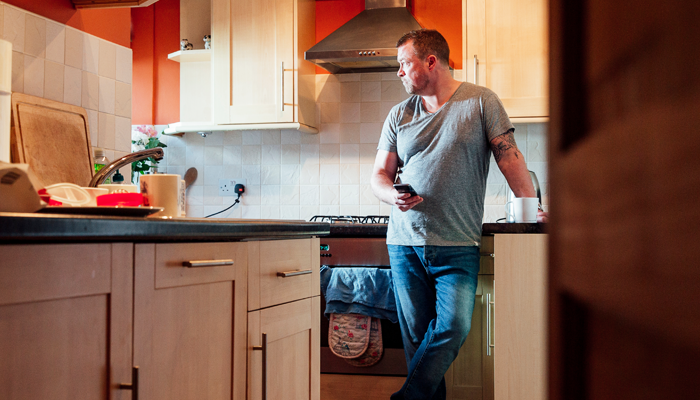Homelessness Prevention Task and Finish Group shares recommendations in wake of highest ever figures

Urgent transformational change on homelessness prevention will only be possible if new Scottish Government proposals are properly funded, a new report has warned.
In the face of an escalating housing emergency presented in stark annual figures published yesterday, a new report produced by leaders from local government, third sector, health, education, social care and justice says that work needs to happen now to push forward on the prevention of homelessness.
While the Scottish Government is set to strengthen homelessness prevention through the upcoming Housing Bill, the Homelessness Prevention Task and Finish Group, which produced the report, warned that ministers cannot afford to wait until pressures on the system ease and that investment now is critical to the success of future policy.
The Group, co-chaired by Crisis and Cyrenians, said proposals for new legal duties on public services, requiring them to play a role in preventing homelessness by ensuring people in housing crisis get help earlier, could create a world-leading system, but warned the changes would only work if they are properly resourced.
Under the plans, responsibility for preventing homelessness would be widened, so that those working in areas such as health, justice and education ask people about their housing situation and direct them towards help if required.
But with public bodies in Scotland operating under huge pressure, the report warned that the new duties would only be successful if ministers carried out a full financial assessment to ensure adequate funding was in place.
The Homelessness Prevention Task & Finish Group’s final report, produced following six meetings across 2022 and 2023, considered the groundwork necessary for making new prevention duties for public bodies a success.
As well as highlighting the need for adequate funding, it also called on the Scottish Government to drive cross-sector cultural change to put the needs of people at risk of homelessness first, stating that only by working together across public, third sector and private organisations can government hope to end homelessness in Scotland for good.
With similar homelessness prevention legislation already in place in England and Wales, the report said that by learning from experiences in other parts of the UK and galvanising sectors to get behind prevention, Scotland’s approach could go further than anywhere else in the world.
Among its recommended actions, the Group has called on the Scottish Government to clarify which public bodies would be expected to take on the new duties to prevent homelessness, to allow them to prepare and support frontline staff.
Recommended actions include training across the different sectors that interact with people at risk of homelessness, so that professionals in health, justice and education work together to identify early warning signs that someone is at risk of housing crisis.
The report also recommends that local authorities across Scotland make preventing homelessness a priority by building the aim into strategic planning.
Alongside the work required to support the delivery of these legal changes, the Group emphasised the need to continue to build, acquire, update and adapt a better range of housing that meets the needs of communities.
Matt Downie, chief executive of Crisis, said: “We encounter people whose homelessness could have been prevented every day, and we have done for decades. People who, with a bit of help earlier, could have avoided the trauma, injustice and indignity of homelessness altogether.
“The measures proposed by the Scottish Government to prevent homelessness could be transformative. But to work properly, they need to be backed up with adequate resourcing and the support local authorities and public services so desperately need.
“We know what causes homelessness, and we know how to prevent it. People working in our public services can play a key role in helping to prevent homelessness, but to do that they will need support, through resourcing and through training, to help them identify the red flags that show someone could be at risk of housing crisis.
“These proposals could represent the beginning of the end of homelessness in Scotland. We know how to do it, we just need to push on and make sure those doing the work have the support they need. Together, we can and will end homelessness.”
Ewan Aitken, chief executive of Cyrenians, who co-chaired the report, said: “Homelessness in Scotland has reached crisis levels and local authorities and the whole housing system are under huge pressure. But we can’t wait for that pressure to ease before prioritising prevention. We have to invest in prevention to reduce the number of people reaching crisis point, both to ease systemic pressures and to change people’s lives for the better.
“We could change lives across the country if we commit ourselves now to preparing public bodies for these new prevention duties. Every day in Scotland people leave our hospitals, our prisons, our courts and our care system with nowhere to go. If we work together across third, business and public sectors and give our public sector staff the resources, the training and the legal clarity on what their responsibilities are, we could have a system that creates safe pathways and secures homes.”









